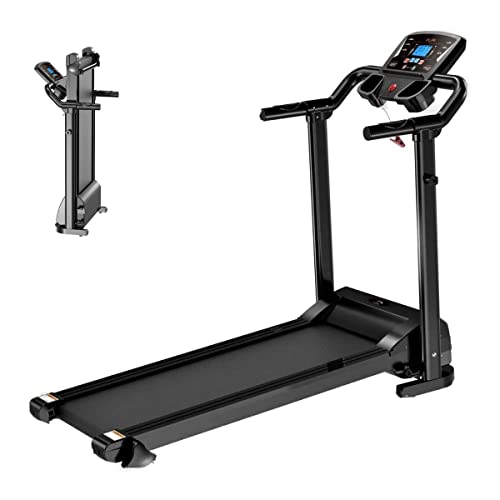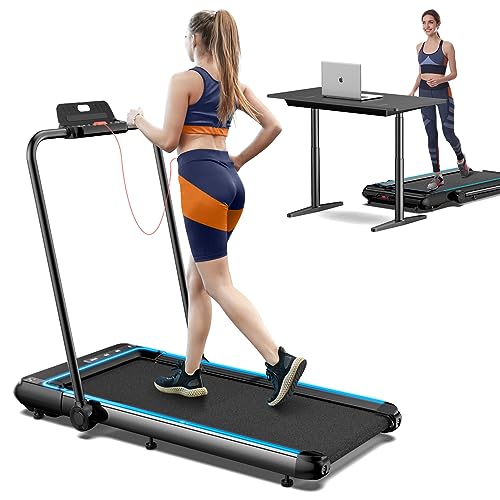You'll Never Guess This Tread Mill's Tricks
페이지 정보
작성자 Celina 작성일25-07-13 15:19 조회12회 댓글0건관련링크
본문
The Treadmill: A Comprehensive Guide to Understanding and Utilizing This Fitness Machine
Treadmills are a staple in health clubs and homes alike, serving as an effective tool for cardiovascular workout. With their adaptability and variety of functions, treadmills deal with users of all physical fitness levels. This article explores the ins and outs of treadmills-- covering their benefits, types, usage suggestions, maintenance, and a lot more.

The Benefits of Using a Treadmill
Using a treadmill can offer numerous health advantages, making it a popular choice among fitness lovers. Below are some key benefits:
Cardiovascular Health: Regular treadmill use can improve heart health by increasing aerobic capacity and cardiovascular endurance.
Weight Management: Treadmills enable users to burn calories efficiently, assisting in weight-loss or management.
Convenience: With the capability to work out inside, treadmills eliminate environmental barriers, like weather condition and time restrictions.
Adaptability: Users can manage speed, incline, and exercise duration, allowing them to customize their exercise regimen to fit their needs.
Joint Impact: Many modern-day treadmills offer cushioning, which can lower the influence on joints compared to operating on hard surfaces.
This thorough guide examines the various types of treadmills and what features to think about when acquiring one.
Kinds of Treadmills
Picking the best type of treadmill depends upon specific fitness goals, budget, and available area. Here are the various varieties:
1. Manual Treadmills
- Definition: These treadmills operate without motors; users power the belt through their movements.
- Advantages: Typically more cost effective and energy-efficient.
- Disadvantages: Limited features and less stability compared to motorized options.
2. Motorized Treadmills
- Definition: Equipped with motors to control belt speed and incline.
- Benefits: Versatile features like pre-programmed programs and digital display screens.
- Disadvantages: More costly and need electric outlets.
3. Folding Treadmills
- Definition: Treadmills that can be collapsed to conserve area when not in use.
- Benefits: Ideal for those with minimal space.
- Downsides: May not be as strong, depending upon the model.
4. Business Treadmills
- Meaning: High-quality, sturdy machines created for frequent usage in health clubs.
- Benefits: Built to withstand extensive exercises with features fit for diverse training requirements.
- Downsides: Generally more costly and larger.
5. Smart Treadmills
- Meaning: Treadmills geared up with smart innovation that tracks workouts and supplies virtual training.
- Benefits: Interactive functions boost the user experience.
- Disadvantages: Higher costs and prospective for technical issues.
Functions to Consider When Buying a Treadmill
When buying a treadmill, it's essential to examine its features according to individual needs and budget. Vital features consist of:
Motor Power: Measured in horsepower (HP); a motor in between 2.0-- 3.0 HP is ideal for a lot of users.
Running Surface: The belt size need to accommodate your stride. A surface area of at least 20" x 55" is normally recommended.
Incline Options: Look for a treadmill offering numerous slope levels to mimic outdoor running and boost workout intensity.
Weight Capacity: Ensure the treadmill can support the user's weight; most can accommodate weights in between 250 lbs and 400 lbs.
Cushioning: Good quality cushioning impacts walking or running comfort and can help prevent injuries.
Foldability: If space is an issue, consider a treadmill that can be folded.
Technology: Features like heart rate displays, workout programs, and Bluetooth connection can improve the user experience.
Table: Key Features and Considerations
| Function | Importance |
|---|---|
| Motor Power | Important for consistent efficiency and user weight capability. |
| Running Surface | Impacts user comfort and stride length; bigger surfaces are better for taller individuals. |
| Incline Options | Allows diverse exercises and targets various muscle groups. |
| Weight Capacity | Critical for safety and durability; choose a design that supports your weight. |
| Cushioning | Minimizes joint impact and makes workouts more comfortable. |
| Foldability | Essential for tread mill (from git.inter.apixel.dev) users with restricted area. |
| Technology | Boosts workout experience and can use important tracking information. |
Tips for Effective Treadmill Workouts
To take full advantage of the benefits of using a treadmill, consider the following tips:
Warm-Up and Cool-Down: Always begin with a 5-10 minute warm-up and finish with a cool-down to prevent injury.
Vary Your Workouts: Mix walking, running, and going to keep things intriguing and work various muscle groups.
Integrate Incline: Use slope settings to challenge yourself and increase calorie burn.
Stay Hydrated: Keep water close-by to remain hydrated throughout your exercises.
Listen to Your Body: Pay attention to any pain or fatigue; rest when required.
Treadmill Maintenance Tips
To guarantee durability and ideal performance of a treadmill, routine maintenance is important. Secret maintenance practices include:
Lubrication: Frequently lubricate the running belt for smoother operation.
Cleaning: Wipe down the machine after each usage to prevent dust and sweat accumulation.
Tightening up: Regularly inspect and tighten up loose bolts or screws.
Inspect the Belt Alignment: Ensure the belt is lined up appropriately, changing as needed for even wear.
Often Asked Questions (FAQs)
1. How often should I use a treadmill for weight-loss?
Utilizing a treadmill for at least 150 minutes of moderate-intensity aerobic workout weekly can add to weight reduction.
2. Can I walk on a treadmill every day?
Yes, walking on a treadmill daily can be useful; however, integrating day of rest is a good idea to prevent overuse injuries.
3. What should I use when using a treadmill?
Select comfortable, moisture-wicking clothing and supportive shoes to enhance your exercise experience.
4. Is it better to stroll or run on a treadmill?
Both walking and running deal unique benefits; the very best choice depends upon your fitness level, objectives, and individual preference.
5. Exist particular treadmills designed for little spaces?
Yes, folding treadmills and compact styles appropriate for small areas. Always inspect measurements before acquiring.
The treadmill remains a versatile and widely utilized piece of physical fitness equipment. Its blend of benefit, flexibility, and effectiveness makes it suitable for users varying from newbies to skilled athletes. By comprehending the various types and features, along with integrating diverse exercises, users can maximize the advantages of their treadmill regimen. Whether for cardiovascular training, weight reduction, or merely keeping an active way of life, treadmills supply a trustworthy opportunity for attaining physical fitness objectives.

댓글목록
등록된 댓글이 없습니다.

